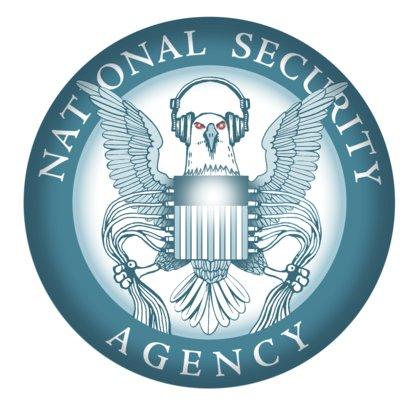One of the reasonable defenses of the NSA wiretapping — perhaps the only reasonable defense offered by the neocons — was that the "wiretapping" simply wasn’t "wiretapping" as we know it. According to conservative pundits, what the NSA was doing was emplying novel technologies which enable our intelligence boys to do "data-mining", where thousands (if not millions) of phone calls and emails are electronically monitored for key phrases which indicate potential terrorist activity.
Bush supporters argue two things with respect to this: (1) data-mining doesn’t fall within the "wiretapping statutes" such as FISA, because there is no specific "target"; and (2) even if it did, it would be virtually impossible to obtain warrants for hundreds of thousands of people.
Administration apologists further argue that the White House couldn’t seek congressional approval for this program because it utilized super advanced technology that we couldn’t risk exposing to al Qaeda.
These are all salient points, except for one thing: it’s not "data-mining" that we’re talking about. We learned this yesterday in no uncertain terms.
General Michael Hayden, the deputy director of national intelligence, defended the NSA’s domestic spying program yesterday:
Hayden stressed that the program "is not a drift net over Dearborn or Lackawanna or Freemont, grabbing conversations that we then sort out by these alleged keyword searches or data-mining tools or other devices that so-called experts keep talking about. This is targeted and focused."
So Hayden is saying that the NSA program isn’t some kind of large-scale data mining operation that the authors of the FISA act never could have foreseen. Rather, it’s "targeted and focused" and involves "only international calls and only those we have a reasonable basis to believe involve al Qaeda or one of its affiliates."
In other words, it’s precisely the kind of monitoring that the FISA court already approves routinely and in large volumes. Another few hundred requests wouldn’t faze them in the least.
With that canard properly plucked, we’re back to the original questions: Why didn’t the Administration seek warrants from the FISA court, who would no doubt have approved them if there was indeed (as the Adminsitration assures us) a reasonable belief that the target was al Qaeda? Was the Bush Administration merely being lazy, or were they engaging in wiretapping which they knew to be violative of the law and the Constitution?
Hayden provides insight to these questions as well. According to Hayden, the reason the President wanted to bypass FISA was because FISA requires a showing of "probable cause" in order to obtain a FISA warrant for eavesdropping on telephone conversations, and the President believed that standard was too burdensome. So the President issued an executive order:
The president’s authorization allows us to track this kind of call more comprehensively and more efficiently. The trigger is quicker and a bit softer than it is for a FISA warrant, but the intrusion into privacy is also limited: only international calls and only those we have a reasonable basis to believe involve al Qaeda or one of its affiliates. . . .
So we’ve gone from "probable cause" to the softer standard of "reasonableness".
When Hayden says that the President’s Executive Order allows eavesdropping using a standard that "is a bit softer than it is for a FISA warrant," what he’s saying, of course, is that the President ordered eavesdropping which FISA prohibits. FISA makes it a criminal offense to eavesdrop without a warrant from a FISA court, and Bush ordered eavesdropping without those warrants. Thus, Hayden claims that when NSA now wants to eavesdrop, it does not need to comply with FISA, but instead, has "two paths" to choose from:
If FISA worked just as well, why wouldn’t I use FISA? To save typing? No. There is an operational impact here, and I have two paths in front of me, both of them lawful, one FISA, one the presidential — the president’s authorization. And we go down this path because our operational judgment is it is much more effective. So we do it for that reason.
Sadly (for Bush supporters), Hayden is grossly mistaken. There is no softer "second path". Read Section 1809 of FISA, which expressly provides that "[a] person is guilty of an offense if he intentionally – (1) engages in electronic surveillance under color of law except as authorized by statute. . . .". A presidential authorization, such as the one described by Hayden, is not a statute.
Need more? Here’s the final nail in the coffin: Section 2511(2)(f) provides that FISA "shall be the exclusive means by which electronic surveillance . . . may be conducted."
FISA, written in the wake of Nixon abuses of wiretapping, was unquestionably intended to be the absolute word on government electronic surveillance — i.e., when it can and can’t be done, and more importantly, how it is done. It was all-encompassing. By its very own terms, there is no "other way".
Glenn Greenwald has more thoughts, including this excellent summation:
In essence, what we have from the Administration, then, is the "Bad Law" defense to criminality: "I did break the law, but the reason I broke the law was because it wasn’t a very good law to begin with."

